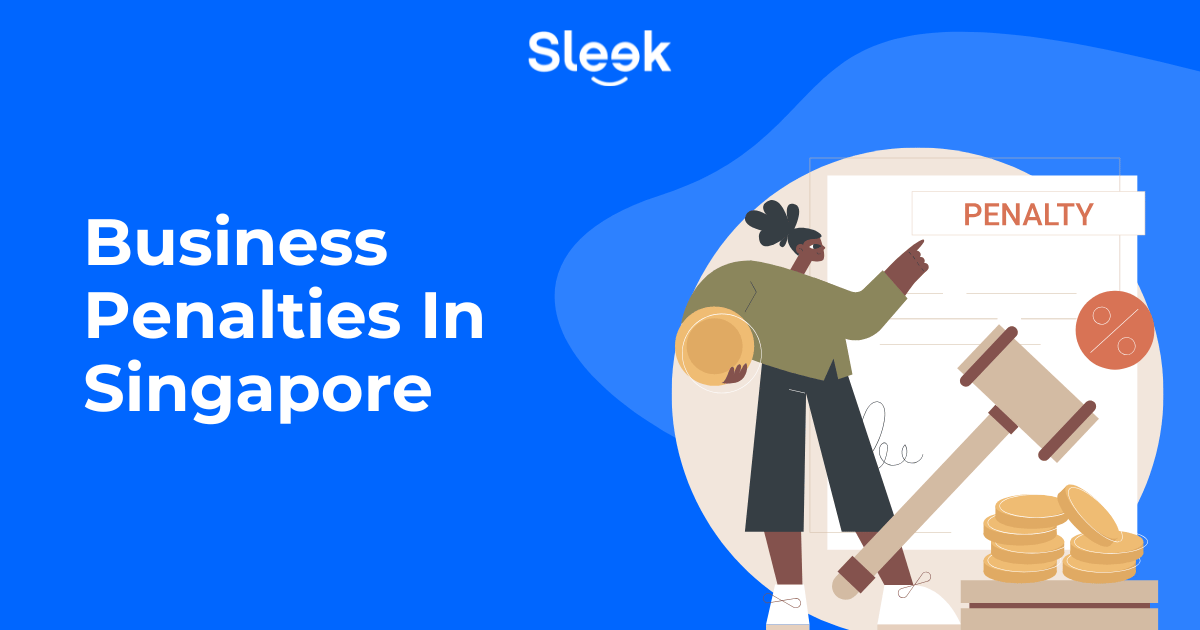Tips on how to manage your payroll in Singapore
10 minute read
Managing your payroll can be a strenuous job, especially when your business contributions in Singapore is growing and your employee headcount is keeping up with that. From processing and reporting payroll components to ensuring compliance with the Singapore regulatory requirements to computing and disbursing salaries, managing your business’s Singapore payroll should be carried out with utmost accuracy and care.
Overview:
How to ensure a successful payroll management
Similar to all other countries in Asia, payroll management in Singapore in 2020 covers more than just a list and number of people your business employees and what they should be paid.
It’s more than just being knowledgeable about tax information, CPF, deductions and complying with Singapore legal requirements. An efficient payroll process is essential to keep your employees motivated to deliver and perform excellently.
To help you manage your employment and the Singapore payroll system efficiently, with respect to company’s privacy policy, we’ve outlined some points employers need to consider and be mindful about in this article:
1. Salary refers to basic income wages and allowances rate that covers payment for work done under a contract of service. It does not include food, housing and travel allowances.
2. Salary should be paid and payslips to be delivered at least once or two, three times a month or at shorter intervals, depending on your discretion as one’s employer but most preferably within 5-7 days after the end of the monthly salary period and no longer than that.
3. Employers should issue itemised pay slips to all employees covered by the Employment Act, Appendix 8A and Appendix 8B, which should enumerate the essential details including basic salary and allowances, date of payment, salary period, overtime pay, annual leave and all deductions made.
4. Employers must keep detailed employment and salary records of their local and foreign employees for tax purposes, while records of ex-employees should be kept for one year after leaving.
5. For incomplete work months, an employee’s salary and annual leave should be prorated according to the contract, where an employee will only be entitled to the prorated portion of his salary for those days of the month that he worked.
6. Employers are expected to pay at least 1.5 to 2 times the hourly basic rate of pay for overtime work, which is any work done in excess of the normal hours of work (excluding breaks). Employees can only work up to 72 overtime hours in a month, and payment for overtime work should be made within 14 – 18 days after the last day of the salary period.
7. Employers who have received a notice to file their employment income electronically or employ a team of 8 or more workers during the entire year should submit their employees’ income (IR8A) information to IRAS electronically. In order to submit employment income electronically, the company has to register for the Auto Inclusion Scheme (AIS) with IRAS on myTax Portal, with their Corp Pass. The timeline to register for AIS is 1 Apr 2019 to 31 Dec 2019.
8. Mandatory levies, contributions, and statutory requirements should be strictly complied with. In Singapore, other than the Central Provident Fund (CPF) contributions, employers are also required to make the monthly contributions for the following:
- Skills Development Levy for training grants for when you send your employees for work-related trainings
- Ethnic funds aimed at helping the less privileged in the respective ethnic communities such as CDAC, MBMF, ECF, and SINDA
- Levies for foreign workers with Work Permits
- CPF contributions
Payroll management mistakes to avoid
The companies’ accuracy of payments, prompt wage payouts, proper maintenance of records part, copyright and compliance with regulations are some of the essentials of good payroll management. Find out the common mistakes that you should avoid while doing business in Singapore.
Inability to keep accurate and updated employee details
It should go without saying that keeping an up-to-date employee database is critical for every business’s accurate data processing. A wrong employee account number or any change on the employee’s record like name or address not promptly updated on the database can lead to costly mistakes that may be time-consuming to correct and eventually confuse an employee.
Inexperienced payroll staff and human errors
To save on costs and expenses, some companies in Singapore choose not to invest in outsourcing payroll management or on a payroll software. Sadly, the human element involved in payroll processing systems (or any management system, for that matter) almost always results in costly errors such as miscomputation and non-standardized of computational procedures. Even 1 simple mistakes can cost a lot of time and effort to amend.
Delayed or irregular salary payment schedule
Keeping the morale of your workforce is essential if you want your employees to be happy with their respective jobs and continue working for you. With that said, it is equally important to ensure that your payroll management system is able to manage deadlines and carry out accurate calculations and pay out your employee salaries and allocate CPF on time to eliminate unnecessary confusion and negatively affecting their expense plans or GIRO arrangements.
Failure to keep and maintain employee payroll records
It is every company’s obligation to be able to produce employee records and relevant employment forms whenever the need for such arises. This could be when there is a dispute regarding payments made or when enquiries arise from the IRAS or other tax regulatory bodies. In Singapore, employment forms including Form IR8A and Appendix 8A, IR21, Form IR8S or Appendix 8B have to be regularly collected and submitted to the proper authorities before the 1st of March every year.
Compromising personal and confidential employee information
The salary, contract of service, employment benefits, and other personal data of employees should be held strictly confidential. With the involvement of the human factor or the in-house staff in payroll processing however, there is the risk of this confidential employee information being shared and becoming accessible by undesirable parties.
The big picture
A successful payroll management involves more than just the accurate processing of your employees’ salaries and payout rate. It likewise involves proper maintenance of the system and the prompt disbursement of the salaries.
Over time as your company and business in Singapore grows, your employee and workers profile will likewise grow and be more complex to handle, requiring more time and effort to process and manage your payroll.
At Sleek, we provide cost-effective and hassle-free payroll management service on your behalf. We are experienced in providing services to meet our clients’ needs. Contact us if you have any questions and to find out more.
What now?
Well it’s simple! If you have any questions about getting your business started, get them all answered by having a free consultation call with our experts.
You might be interested in reading about:









